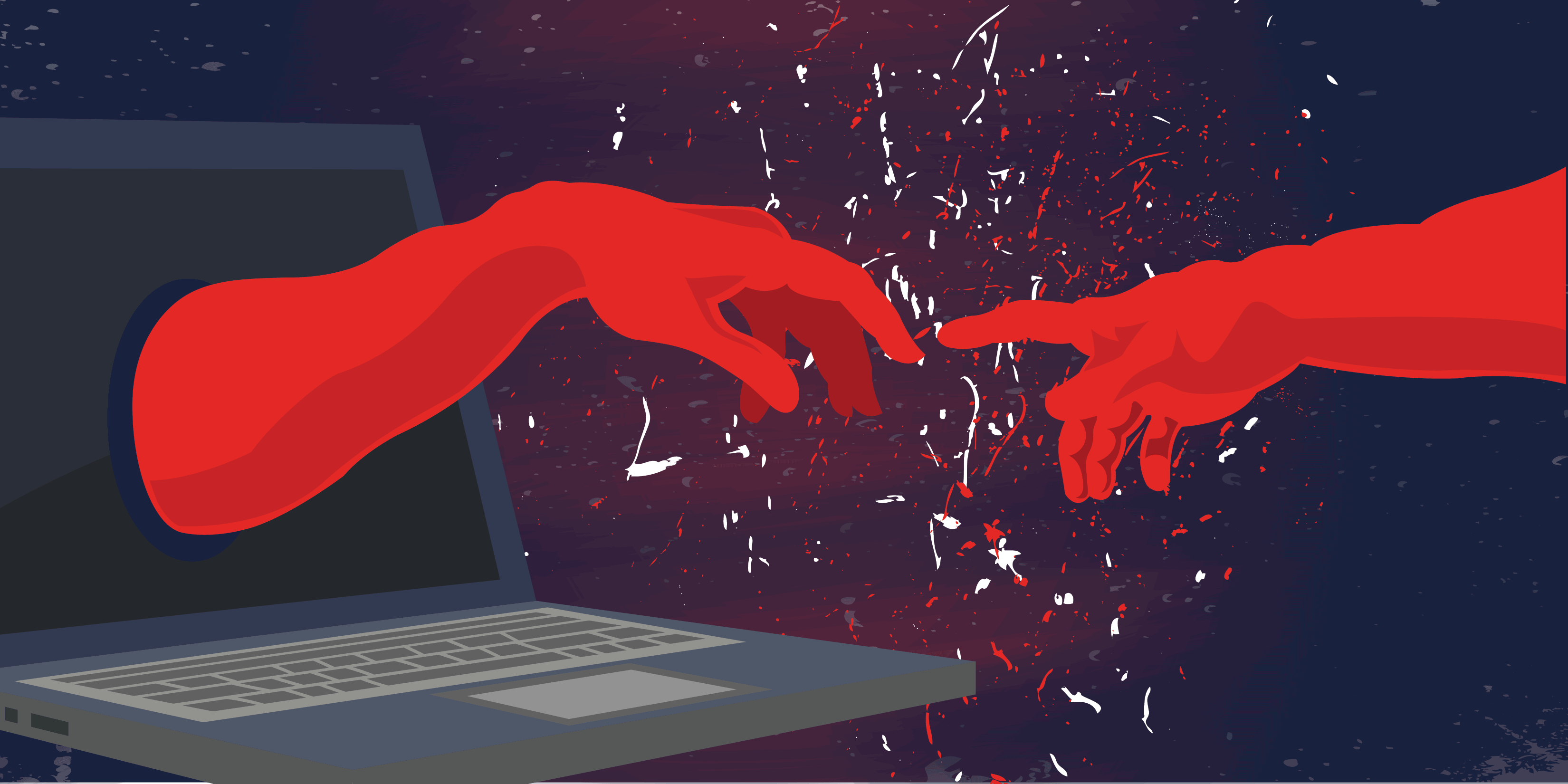Editorial: Robot technology encroaches on human life
April 13, 2017
 Jacob Singleton and Michelle Tam
Jacob Singleton and Michelle Tam
Technology is becoming even better at predicting our next move, sometimes even before we know what we’re thinking. And movies are the perfect place to follow the transition.
When robots first made their debut in movies, they were put in an intergalactic setting. Characters we loved, like C3PO and R2D2, showed the qualities of loyal sidekicks but never held enough ground that we’d picture them rolling down the street with us one day.
The 2013 film “Her” revolves around a depressed, isolated Joaquin Phoenix living in a futuristic Los Angeles. Director Spike Jonze showcases what it’s like to love and lose in the digital age.
However, Pheonix, even in his most lonesome, is never entirely alone. After all, he has his digital operating system, Samantha, who is a Siri-like operator voiced by Scarlett Johansson.
Get The Daily Illini in your inbox!
Jonze gives no time stamp for the film. That’s because dynamic human-robot relationships are not so far-fetched. It could be tomorrow, 10 minutes from now or happening as you read this editorial.
The “science fiction” we pay $7 to watch on the big screen isn’t much different than the life we live assisted by technology today. While there is yet to be a report on an employee eloping with his automated coworker, films are created with the tendency to reflect reality.
The line between robot and human shown in film often exudes more than just an ethical debate. It’s good versus evil. Will Smith’s 2004 blockbuster, “I, Robot,” took the negative stance where robots work to enslave humans. Then there’s the movie “Ex Machina,” the science fiction thriller where a Silicon Valley millennial is manipulated by his feelings for an enigmatic, highly intelligent robot.
But the truth is robots are not just for the big screen. They’re already here, increasingly becoming essential to our everyday lives, whether we have requested their service or not. They’re our tiny sidekicks telling us the weather, the news and the schedule for our day.
First there was Siri, our beloved and trusty Apple sidekick. But today, she’s the grandma to her newest offspring developed with the most recent technology to perform tasks that she couldn’t.
Both Google Home and Amazon’s Echo use the Alexa operating system which answers questions and holds conversations with users.
They’re certainly helpful and the natural next step in the ever-competitive race to the technological top.
But to act efficiently, the tech-giants keep recordings and records on their users. Operating systems are part of our everyday routine and never actually get turned off. Unsurprisingly, this never-leaving house guest is becoming a problem.
According to a Washington Post article, prosecutors of a 2015 Arkansas murder trial want Amazon to release records from the defendant’s Echo. They believe the data might help them solve the case.
The debate over large companies holding data on citizens is a governmental concern. It’s not something we’re discussing here.
But we’re not here to scare you or tell you robots are ruining the world. For every story about the pitfalls of robotics, there’s another about their increasing benefits. We’ve even reported on it. In a new longform piece, a Daily Illini reporter showcased the possibility of robots becoming our next co-workers. They’re efficient, and they don’t take vacation days.
The incorporation of robots in our lives is inevitable; at this point, how could we stop them from showing up at our doorstep or in our conference rooms during work meetings? But we have always been assisted by technology, whether it be the invention of the wheel or the birth of the first cell phone without a hinge.
In this digital day and age, we can’t feasibly attempt to purge our lives from anything with a screen, but as our computers and everyday tools become more and more competent, we must be conscious that we don’t lose ourselves as these technologies advance.






